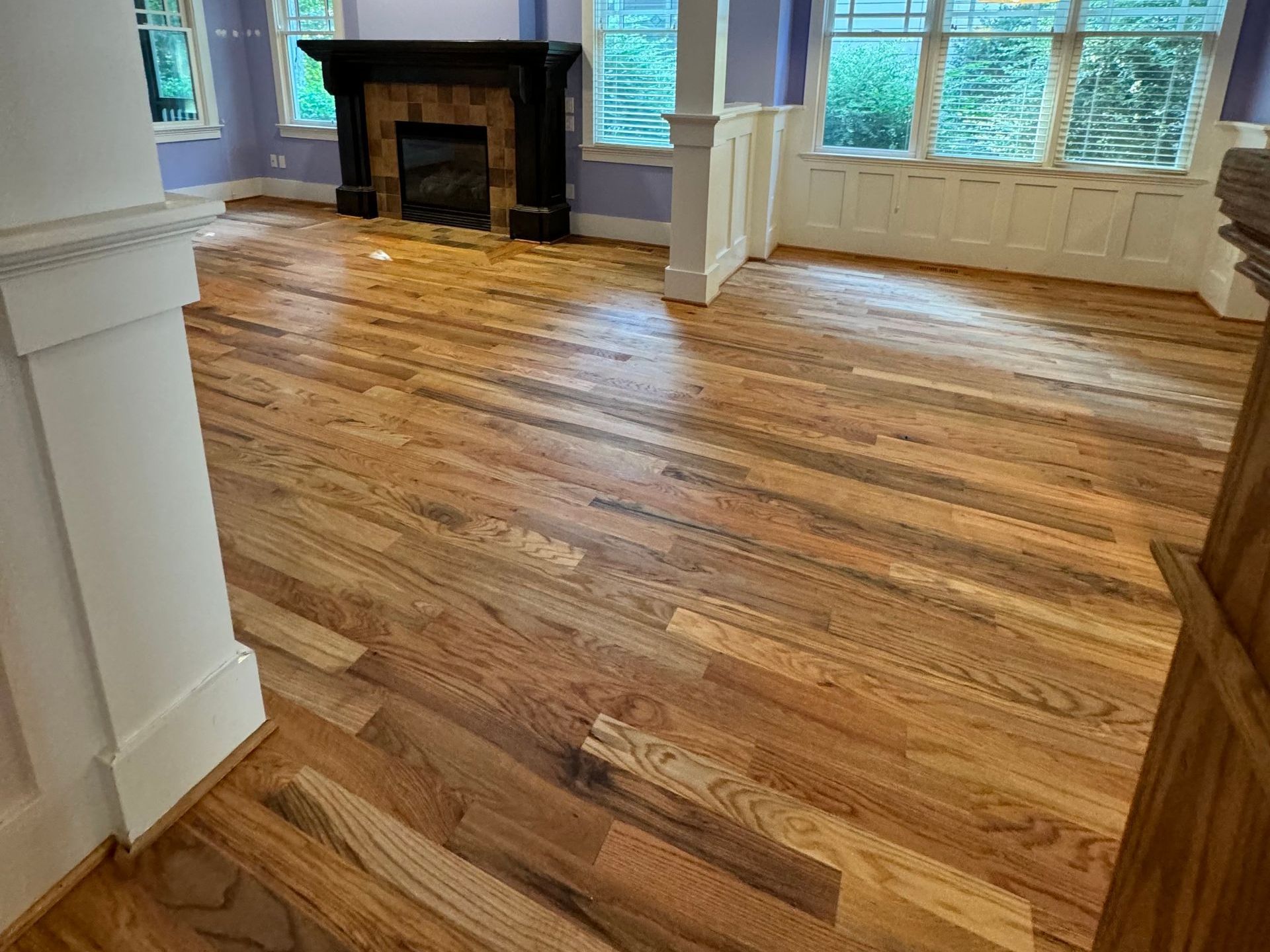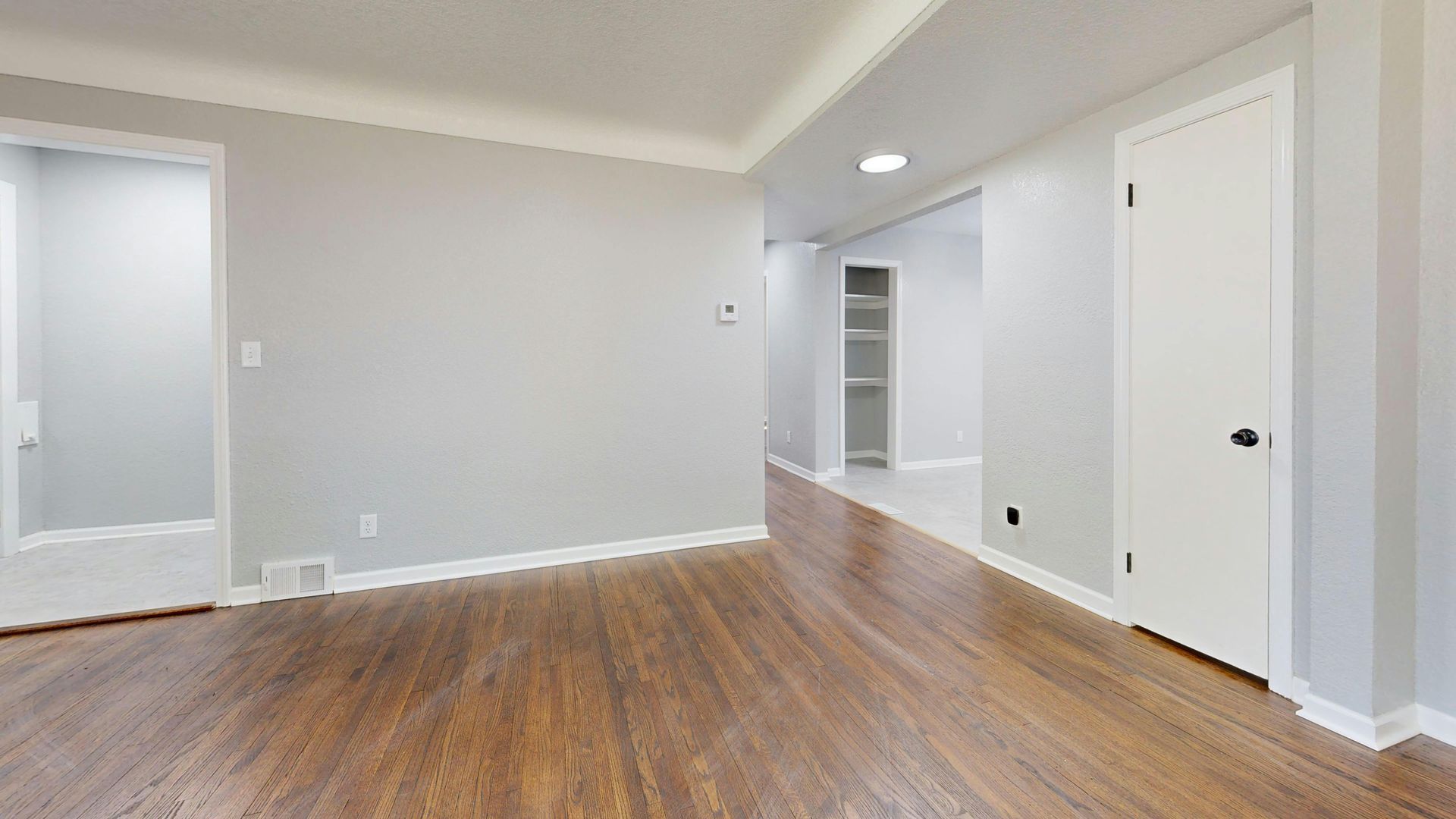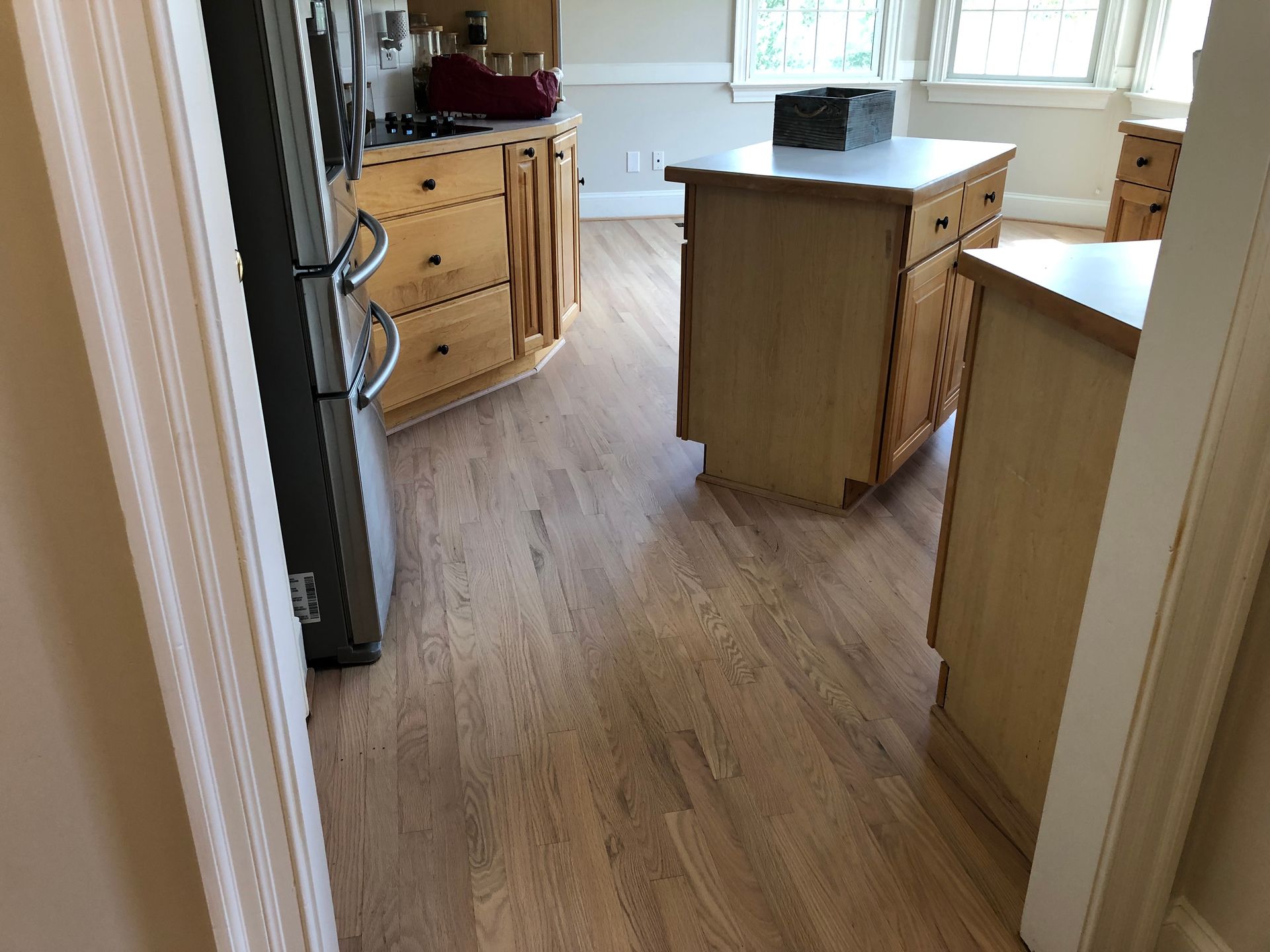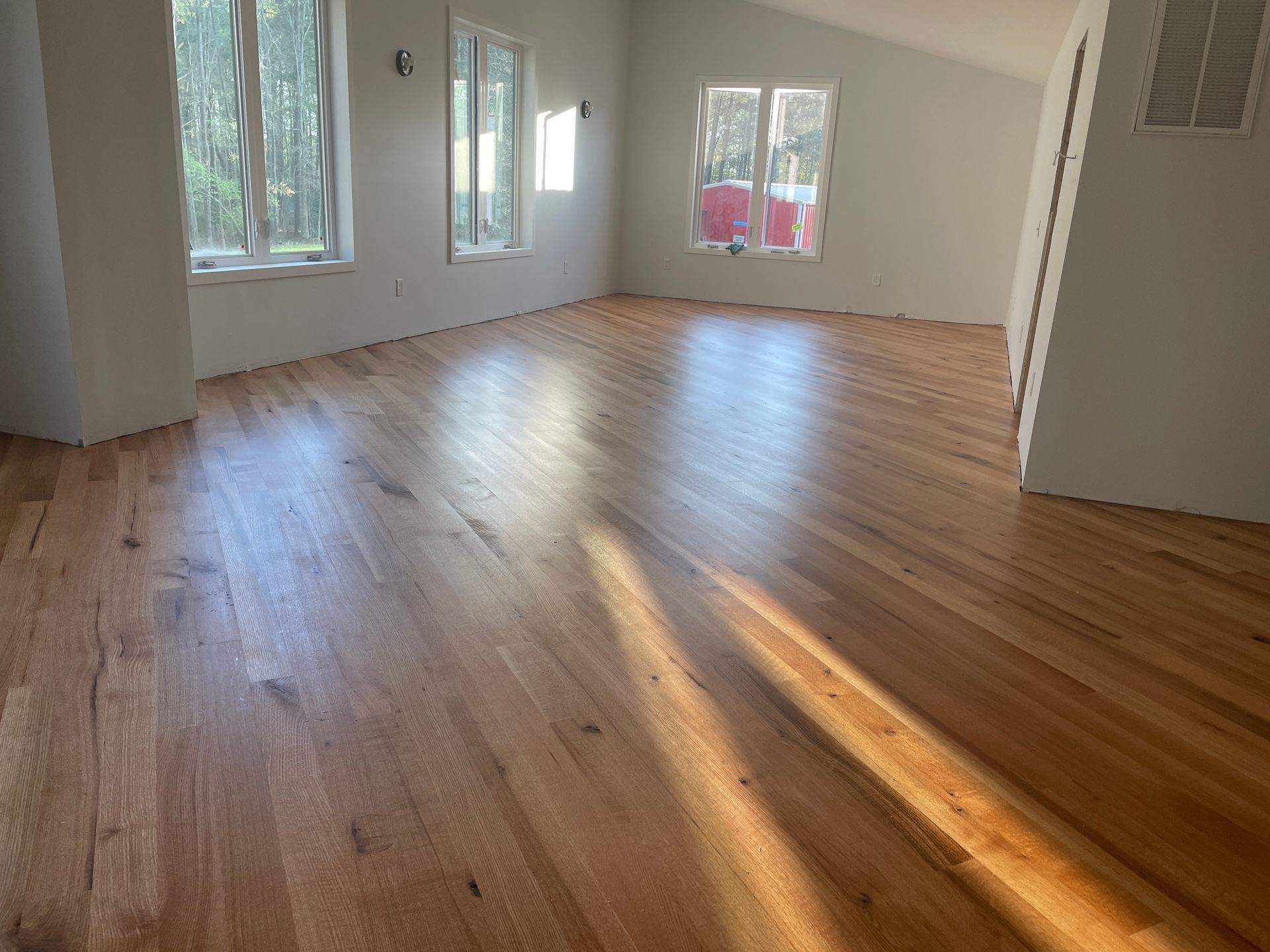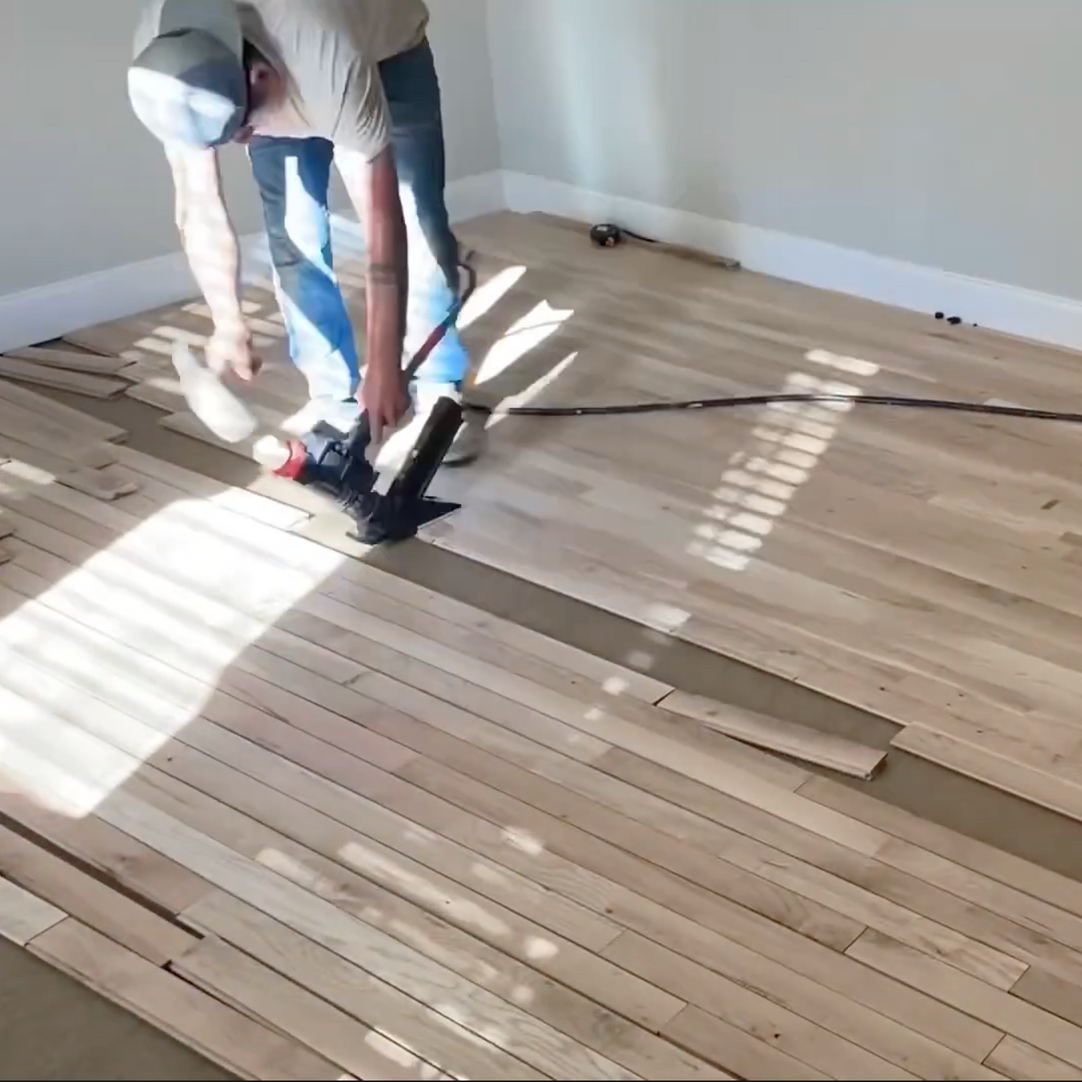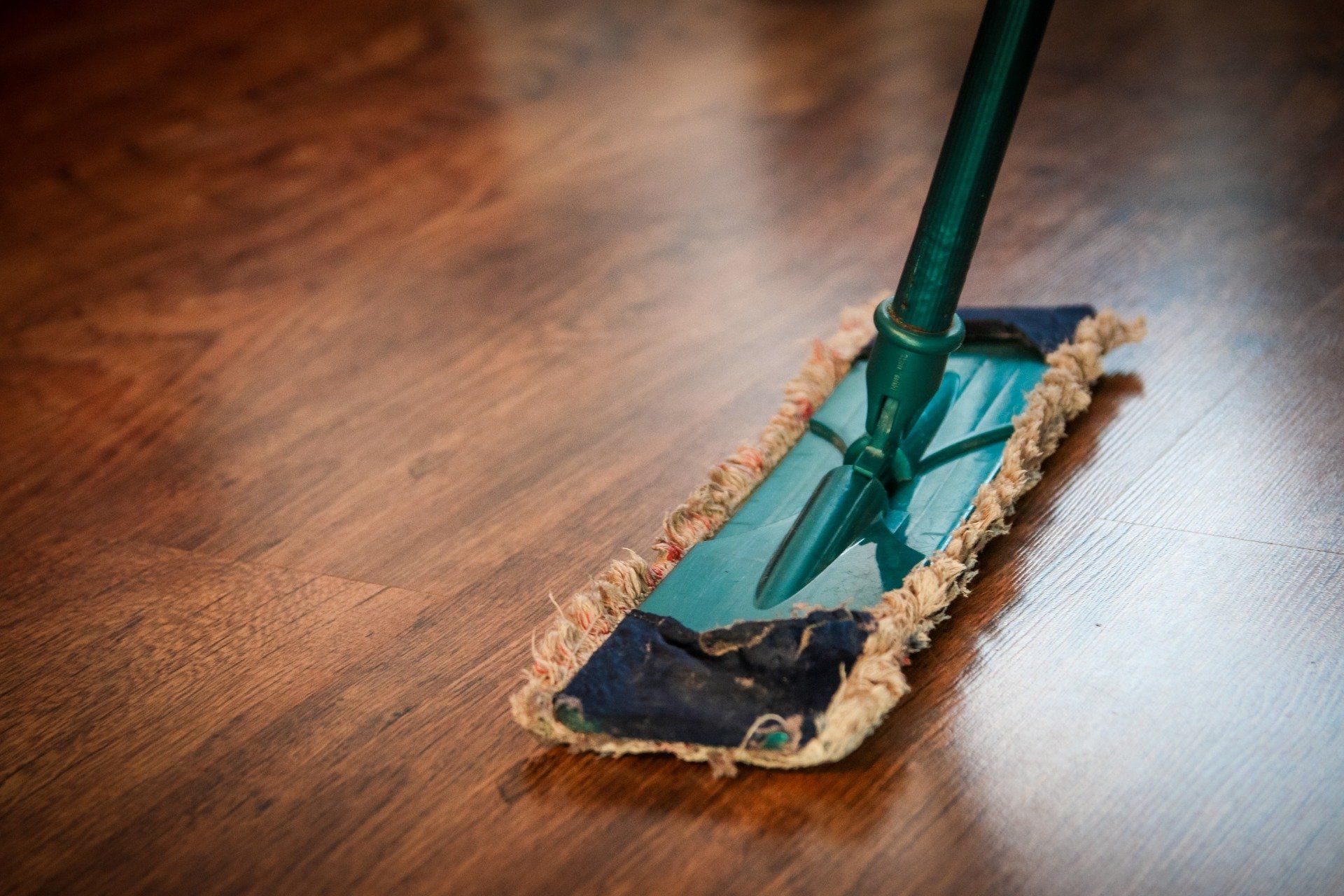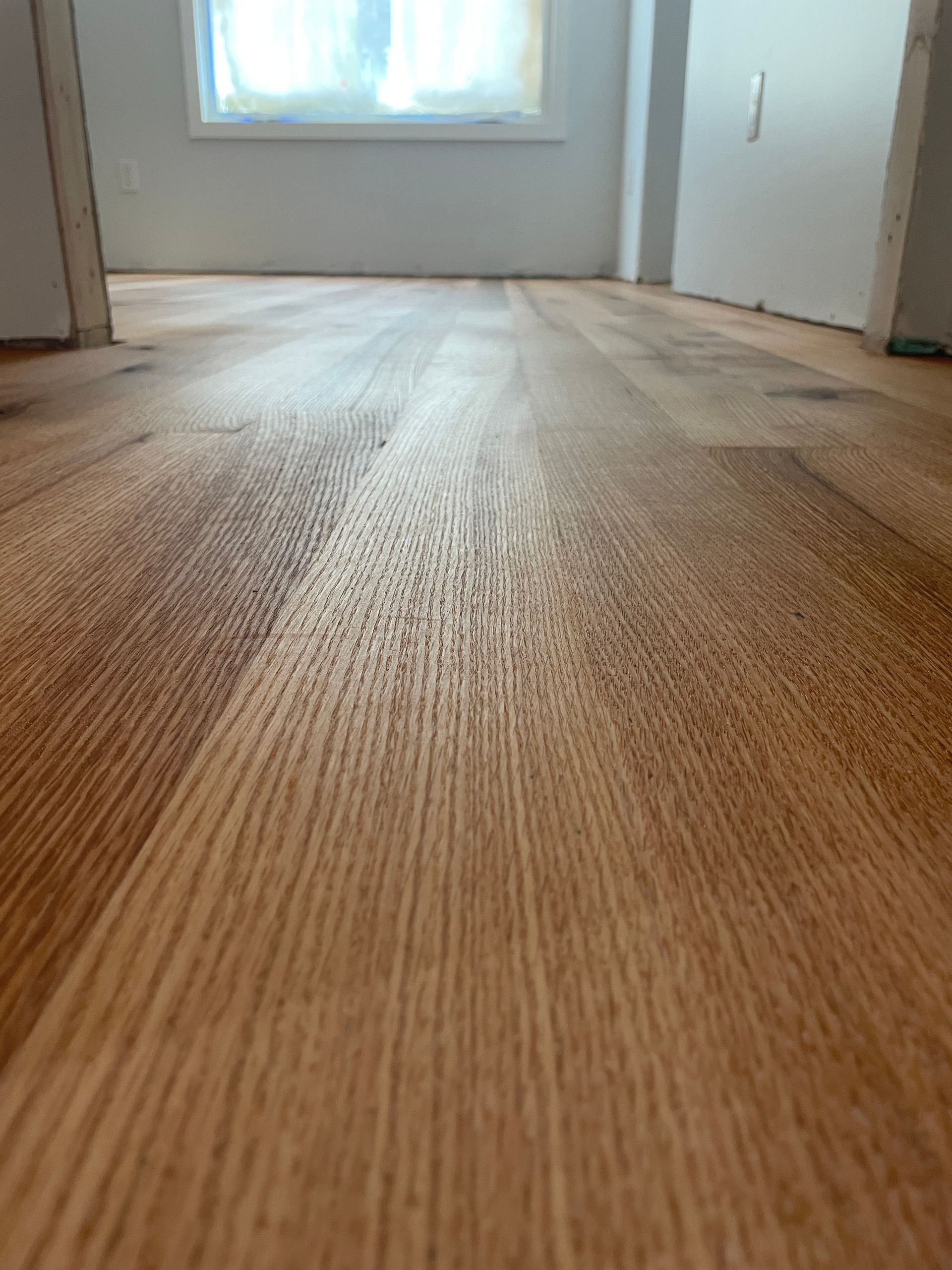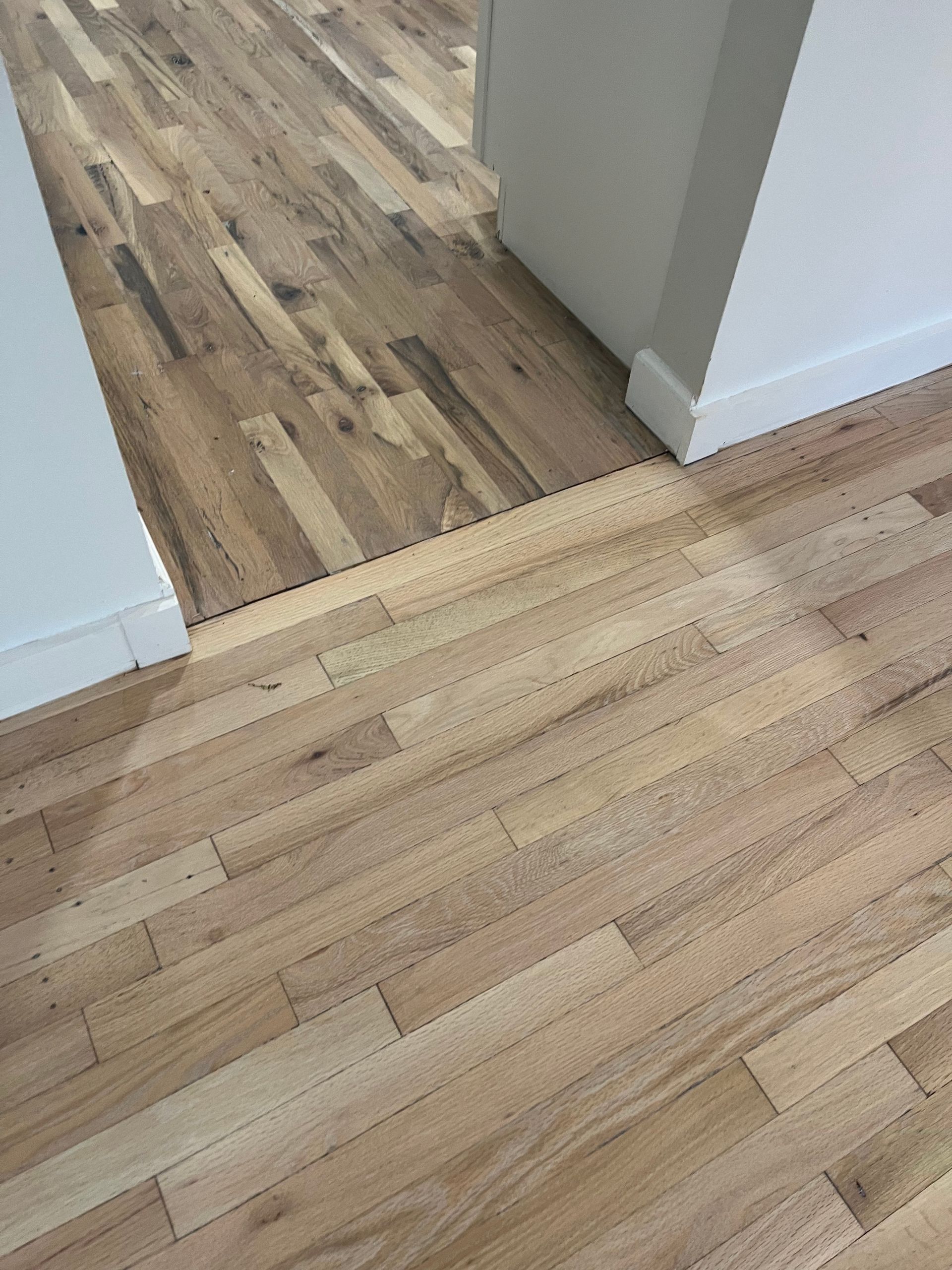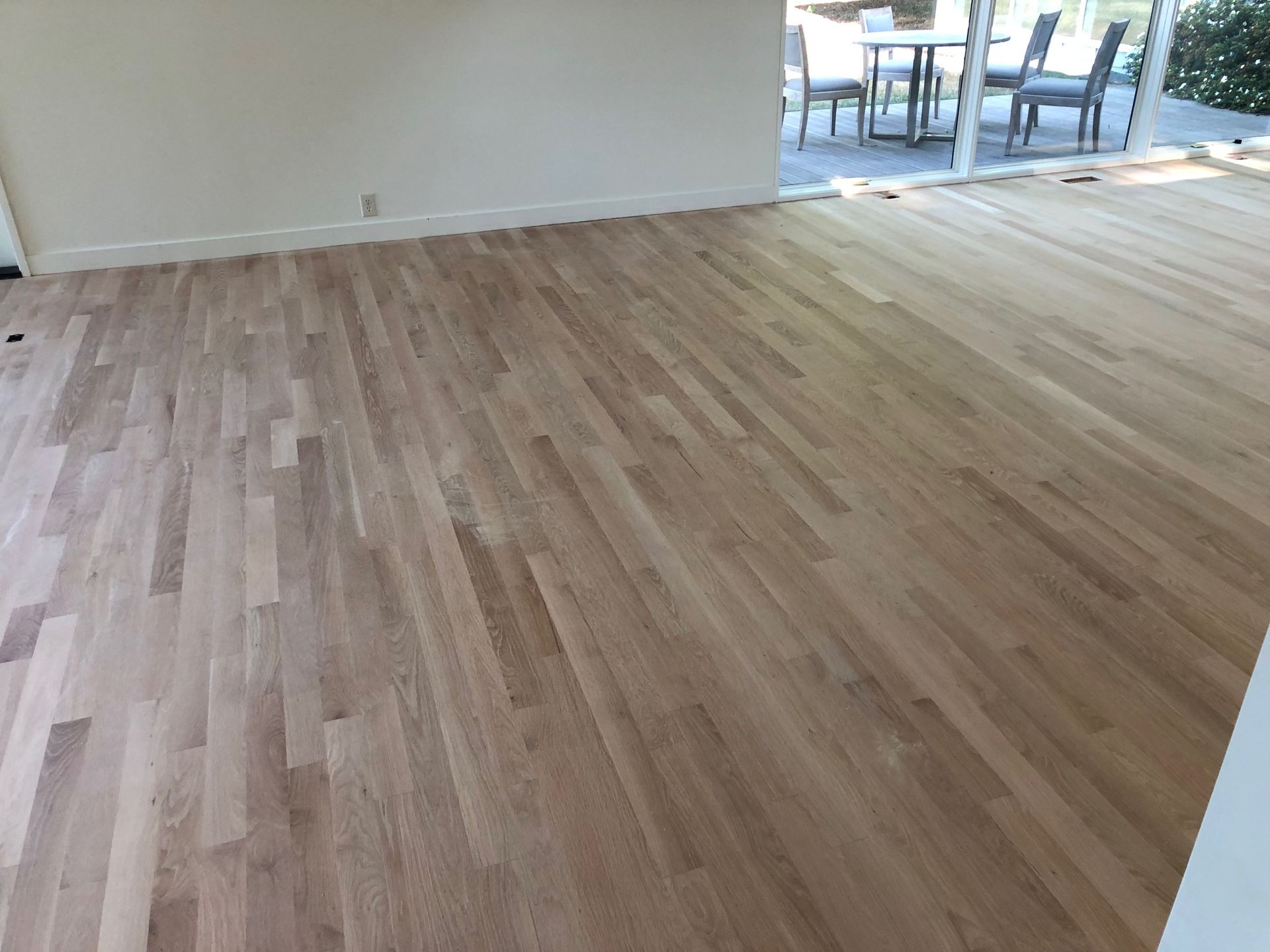How Natural Oil Finishes Improve Indoor Air Quality
For homeowners in North Raleigh, Chapel Hill, and across the Triangle, refinishing hardwood floors is more than just a design upgrade — it’s a chance to create a healthier home.
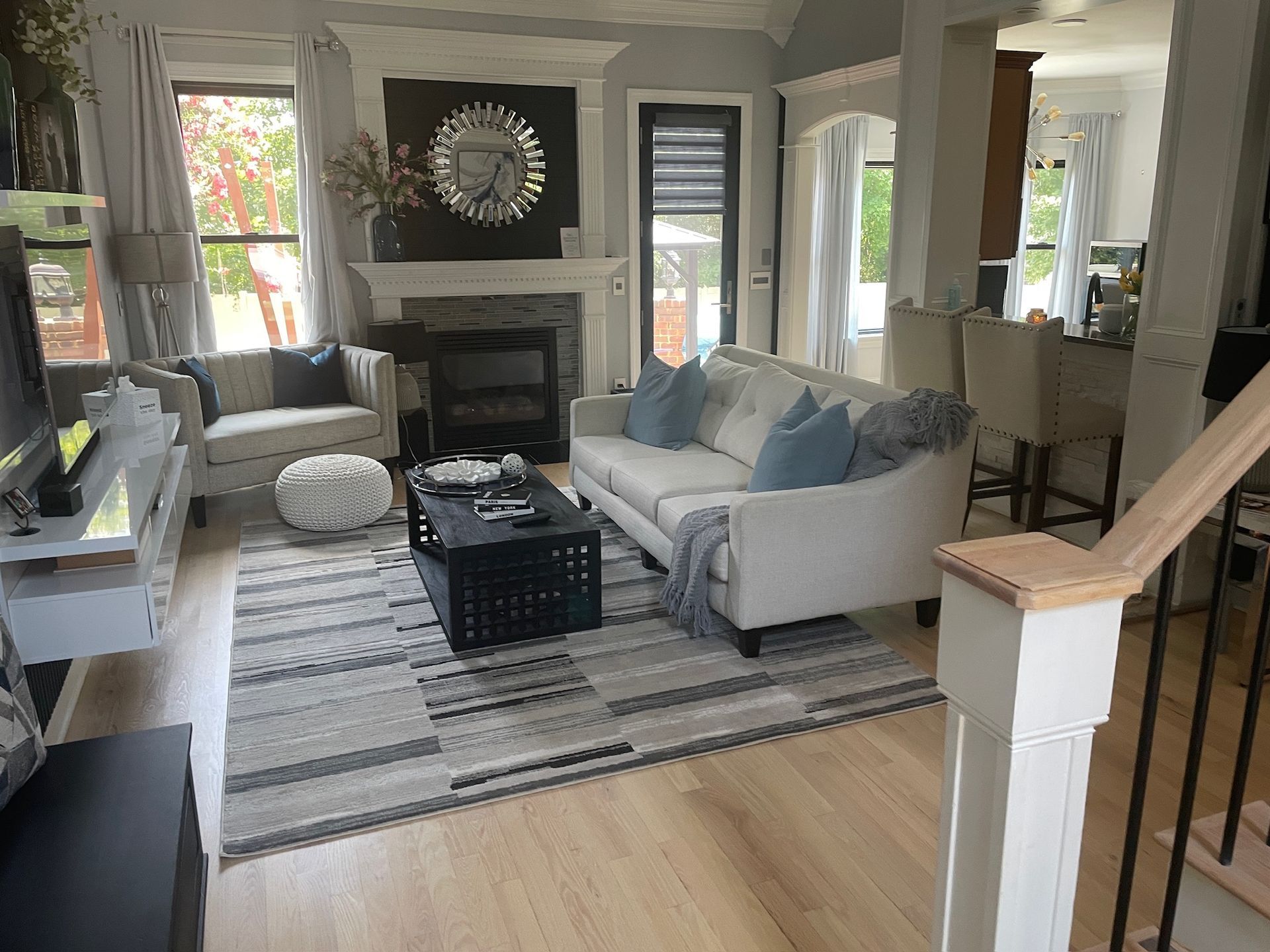
When you’re living in a region where the seasons swing from pollen-heavy springs to tightly sealed, heated winters, the air inside your home matters just as much as the air outside. At Grades Hardwoods, we’ve noticed more and more local families looking for ways to reduce chemical exposure during home renovations. One of the easiest — and most beautiful — ways to do that is by choosing a natural oil finish for your hardwood floors. Not only does it give the wood a timeless, elegant look, but it also helps keep your indoor air fresh, safe, and free of harsh chemical fumes.
If you’ve ever walked into a freshly renovated home and been greeted by a heavy, chemical smell that made you want to crack a window as fast as possible, you’ve already experienced the biggest downside of many modern finishes. That sharp scent is more than just unpleasant — it’s often a cocktail of volatile organic compounds (VOCs) that can linger in the air long after the floors are dry. While traditional finishes like polyurethane can create a hard, glossy surface, they often come at the cost of releasing these chemicals into your indoor environment. Natural oil finishes take a completely different approach, and for many homeowners in North Raleigh, Chapel Hill, and across the Triangle area, that difference has been a breath of fresh air — literally.
When we talk about natural oil finishes, we’re talking about products made from plant-based oils and natural waxes that penetrate deep into the wood rather than sitting on top as a plastic-like coating. These finishes soak into the grain, hardening from within and leaving a surface that feels warm and organic underfoot. The magic isn’t just in the look and feel, though. It’s in the way these finishes interact with your indoor air quality — or rather, the way they don’t pollute it.
Indoor air quality matters more than most people realize. The Environmental Protection Agency has pointed out that the air inside our homes can often be more polluted than the air outside, even in busy cities. This is because many of the materials we bring indoors — from furniture to flooring finishes — release VOCs into the air over time. These are chemicals that evaporate at room temperature, and while some are harmless, others can cause headaches, dizziness, respiratory irritation, and long-term health issues. If you’ve ever felt lightheaded or nauseous after painting a room, that’s VOC exposure at work.
One of the clearest benefits of using a natural oil finish is the drastically lower VOC content compared to conventional finishes. Many natural oil products have low to no VOCs, which means they don’t flood your home with harsh fumes during application or afterward. That “new floor smell” becomes a subtle, clean, almost nutty aroma instead of a chemical wallop. When we at Grades Hardwoods finish a floor with Loba Impact Oil or another high-quality natural oil, the drying process doesn’t fill the home with noxious fumes that linger for days or weeks. Instead, you can walk into your home during or shortly after the project and breathe comfortably.
The reason this works so well is in the way natural oils cure. Polyurethane finishes need heavy chemical solvents to keep the product workable until it’s applied, and those solvents evaporate into your home as the finish dries. Natural oils, on the other hand, rely on plant-based compounds and mild natural solvents that evaporate quickly and don’t leave behind harmful residues. Many of these oils are derived from renewable sources like linseed, sunflower, or tung oil. Once applied, oxygen in the air reacts with the oils, causing them to polymerize — or harden — within the wood fibers. This curing process locks the oil in place without creating a sealed, plastic-like layer, which means the wood continues to “breathe.”
That breathability is another hidden advantage for indoor air quality. A traditional polyurethane finish forms a complete barrier over the wood, trapping any residual moisture or chemicals inside. Over time, this can lead to tiny cracks or separation if the wood expands and contracts with seasonal humidity changes. Natural oil finishes allow moisture to move in and out of the wood naturally, reducing the risk of warping and creating a more stable indoor environment. You’re not just protecting the air from chemical off-gassing — you’re protecting the home from the moisture-related issues that can contribute to mold and musty smells.
There’s also something to be said for the absence of that post-project downtime. If you’ve ever had polyurethane floors refinished, you know the drill: move out for several days, keep the pets and kids away, and then hope the lingering smell disappears quickly. With natural oil finishes, many homeowners find they can stay in the house during the process, and the floors are safe to walk on much sooner. That means no extended exposure to VOCs and no need for an all-out evacuation just to protect your lungs.
Let’s also talk about maintenance, because it plays a surprisingly big role in keeping your indoor air fresh. Natural oil finishes can be refreshed periodically without sanding the floor down to bare wood. You simply clean the surface and apply a maintenance oil to rejuvenate the finish. This process doesn’t release harmful fumes, and because you’re not grinding away the surface with sanding equipment every time, there’s less dust circulating through your home. Dust from floor refinishing isn’t toxic in itself if you’re dealing with modern hardwoods, but it can still be a major irritant for people with allergies, asthma, or other respiratory sensitivities. Less dust means cleaner air — and fewer hours spent wiping down every surface in your home after the project is complete.
For families with children, pets, or elderly members, the health benefits of a low-VOC environment are even more important. Kids spend more time close to the floor, crawling, playing, or lounging, and their developing bodies can be more sensitive to airborne chemicals. Pets, too, have a higher risk of exposure since their noses are constantly in contact with the ground. Choosing a finish that doesn’t release harmful vapors is a small but powerful way to make the home a safer place for the most vulnerable members of the family. It’s not about being overly cautious — it’s about being smart with the choices that will affect your home’s air for years to come.
Another factor people often overlook is the cumulative effect of household pollutants. It’s not just your floors — your indoor air is impacted by cleaning products, furniture materials, paint, adhesives, and even things like scented candles. Each source might not be a big deal on its own, but together they can add up to a constant low-level exposure to VOCs. By choosing a floor finish that contributes almost nothing to that load, you’re making a meaningful difference. You’re removing one major source from the equation, which can tip the balance toward healthier air overall.
For those who are sensitive to smells or who have conditions like multiple chemical sensitivity (MCS), natural oil finishes can be a game-changer. Many of our clients in Chapel Hill who deal with allergies or chemical sensitivities tell us that the difference is noticeable the moment they walk into the room. Instead of bracing for that harsh scent, they’re welcomed by a more natural, pleasant aroma that fades quickly. And because the finish bonds within the wood rather than forming a surface film, there’s no risk of micro-abrasions in a brittle topcoat releasing particles into the air every time you sweep or vacuum.
On the environmental side, natural oil finishes don’t just improve your indoor air quality — they also reduce the impact on the planet. The production of polyurethane involves petrochemicals, which carry their own environmental costs in extraction, refining, and manufacturing. Natural oils, when responsibly sourced, have a much lower environmental footprint. And because they can be maintained indefinitely without a full re-sand, they extend the life of the wood flooring, keeping it out of landfills and reducing the need for replacement materials. That’s an indirect but real benefit for the air we all share.
Over the years, I’ve noticed that homeowners who switch to natural oil finishes often find themselves more aware of indoor air quality in general. It starts with wanting to avoid the fumes during a floor project, and then it becomes part of a bigger mindset shift. Suddenly, they’re checking the VOC content of paints, choosing solid wood furniture over particleboard, and swapping out synthetic air fresheners for natural options. It’s a ripple effect that starts with one decision and keeps spreading, and the results are often a healthier, more comfortable home environment overall.
The beauty of natural oil finishes is that they manage to combine aesthetics, durability, and health benefits without forcing you to compromise on one to get the other. Your floors end up with a rich, matte or satin sheen that feels timeless and grounded, your home stays free of heavy chemical smells, and your lungs — and the lungs of everyone who lives there — get a break. In places like North Raleigh and Chapel Hill, where seasonal changes bring their own indoor air challenges, from pollen in the spring to closed-up houses in the winter, having a floor that doesn’t add to the air pollution makes a noticeable difference.
It’s worth remembering that floors are one of the largest surfaces in your home. They’re not just something you walk on — they’re a constant presence in your living space, influencing everything from the way sound travels in a room to the quality of the air you breathe. When that surface is finished with a product that doesn’t emit harmful chemicals, it’s like giving your home a healthier set of lungs. And unlike an air purifier that needs constant upkeep or a houseplant that only filters so much air, a natural oil finish keeps working quietly in the background without any extra effort from you.
So, the next time you think about refinishing your hardwood floors, picture that moment when the project is done and you walk into the room for the first time. Do you want to be greeted by a wave of harsh, lingering fumes, or do you want to breathe in air that feels as fresh and clean as your newly revived floors look? If your answer is the second one, a natural oil finish is the way to go. It’s not just a style choice or a nod to eco-friendliness — it’s a decision that directly affects the health and comfort of your home for years to come.
The Triangle’s Choice for Healthy, Beautiful Floors
When we apply natural oil finishes in homes across North Raleigh, Chapel Hill, and surrounding towns, we hear the same feedback over and over: “It smells clean.” It’s not just about the scent, though — it’s about knowing your home’s air is free of the harsh chemical vapors that come with traditional finishes. Whether you’re moving into a historic Chapel Hill bungalow, updating a North Raleigh colonial, or transforming a modern Apex townhome, you deserve floors that look incredible without compromising your health.
Choosing a natural oil finish from Grades Hardwoods means you get that perfect balance of beauty, durability, and indoor air quality. We specialize in products like Loba Impact Oil, which give your floors a warm, natural glow while keeping VOCs at an absolute minimum. It’s a choice that feels good today and pays off for years in the form of a cleaner, healthier home environment.
If you’re ready to breathe easier — literally — and give your hardwood floors a finish that’s as healthy as it is stunning, our team is here to help. Let’s make your next refinishing project one that transforms not just your floors, but the air you live in every single day.
Grades Hardwoods — Serving North Raleigh, Chapel Hill, and the Greater Triangle with natural oil finished hardwood floors that look as good as they feel.

